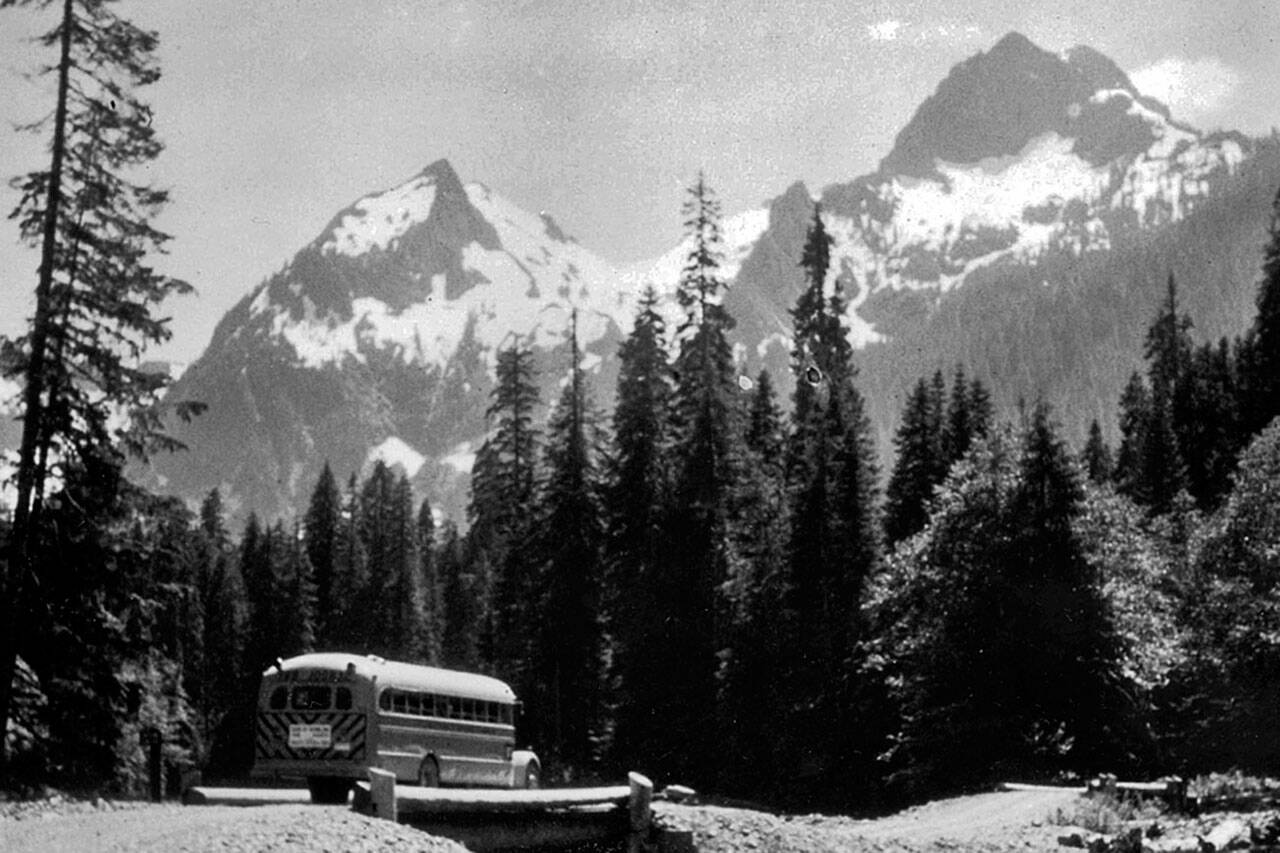By The Herald Editorial Board
Ask former Everett School District students about Camp Silverton, and you’re likely to hear tales from former fifth-grade campers and high school counselors of days spent identifying trees and plants, visiting historic mines and the Big Four ice caves, testing river water for pH levels, sleeping in open-air A-frame cabins, singing around the campfire and generally poking around nature, freed for a few days from the four walls of a classroom.
Used for outdoor education since the 1940s, the school district leased the U.S. Forest Service’s former ranger station site on the Mountain Loop Highway near the South Fork of the Stillaguamish River, but citing costs, ended the lease and closed the camp in 2003. Many of the camps’ structures have been torn down in recent years.
The memories remain however. Kathi Garcin, in a 2019 Herald story, recalled visiting Silverton as a student at Jackson Elementary School. Her family didn’t go camping often, so the overnight camp was a way to experience nature.
“It really did build my love of the outdoors,” she said.
Likewise, current Snohomish County Councilmember Sam Low, for the same story, recalled his Silverton experience as a Garfield Elementary fifth-grader in the 1980s.
“This is 38 years ago, and I still remember so much of those memories like they were yesterday,” he said.
Supported financially by the school district, such week-long overnight camps were not typical among the state’s school districts. But now, even if Silverton never sees another camper, all students in Washington state may have the opportunity for three- to five-day overnight camps and day camps in the outdoors.
State lawmakers are considering legislation, House Bill 2078, that would establish an outdoor learning grant program to develop and support educational programs for students throughout the state. Administered by the state Office of Superintendent of Public Instruction, the grants would be available to school districts to partner with outdoor school providers and state environmental agencies.
As eager as children and parents were for a return to school classrooms after two years of remote learning, there’s now a louder voice for giving students a better opportunity to learn outdoors, in particular, away from screens.
“Our kids are on screens all the time it seems,” said legislation sponsor state Rep. Alicia Rule, D-Blaine, during a Jan. 25 hearing before the House education committee. “They are on screens from the moment they wake up, sometimes at school and often until the moment they fall asleep.”
A mental health professional, Rule said she has seen students “who struggle in the four walls of a classroom get outside learning out in nature, and their eyes light up when they get out there.”
The legislation follows a 2021 report by Western Washington University’s Center for Economic and Business Research that recommended funding outdoor day and overnight programs at facilities managed by State Parks, Department of Natural Resources and the Department of Fish and Wildlife and creating a list of learning outcomes for the outdoor programs.
In advance of the legislation, state lawmakers in last year’s budget set aside $10 million for OSPI and an educational foundation to establish programs and grants for school districts aimed at providing up to five days of outdoor learning for 20,000 fifth- and sixth-grade students as a starting point. The legislation has since been amended to create programs at all grade levels.
Such programs, said Roberta McFarland, director of outdoor education for Highline School District at a Feb. 5 House committee hearing, can provide an interdisciplinary approach to teaching science and would encourage students’ natural curiosity as they observe “nature in nature and not through a screen.”
Additionally, she said, setting up programs in 12 regions across the state, as proposed, would make such education available to all students.
Among those testifying in support of the legislation was Samantha Fogg — and her 6-year-old son, Jacob — as to nature’s ability to grab the attention of children. Her children have attended an outdoors-only preschool program offered in the Seattle area.
“As a parent it was amazing to watch an entire class of 3- to 5-year-old children spot an owl flying into their ‘classroom’ and all the children, without being told, slowed their bodies and quieted their voices so they could observe the owl,” Fogg said.
Students of all grade levels, especially now, need that exposure to the environment in “an outdoor classroom” as a place where a range of courses — science, biology, state and local history including that of Native American tribes, the environment and climate change and even future career opportunities — can be explored. Most importantly, students will get first-hand experience in their responsibility for being good stewards of the land and its resources and an appreciation for its beauty.
“This is our chance to give every child in Washington a week in the woods to fall in love with nature,” Rule said.
Returned to lichen-covered firs and ferns, Camp Silverton lives on only in memories. But today’s students need that chance to again make their own memories among woods, rocks and rivers.
Talk to us
> Give us your news tips.
> Send us a letter to the editor.
> More Herald contact information.

























